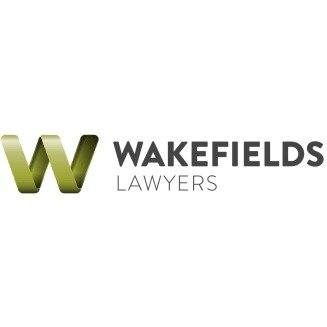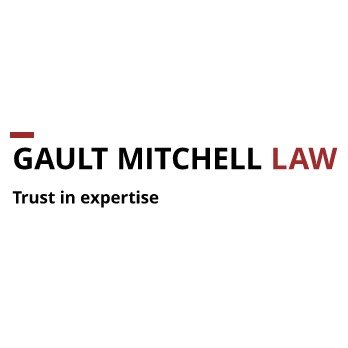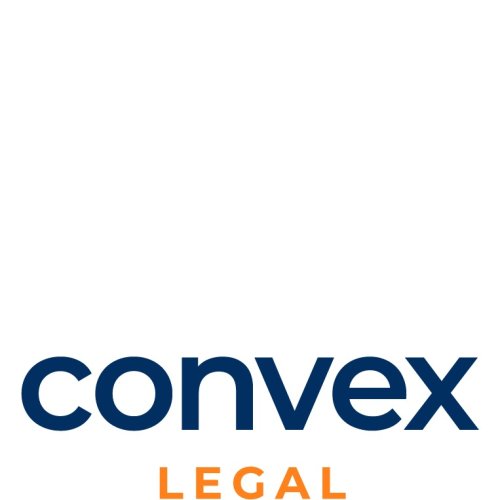Best Project Finance Lawyers in Wellington
Share your needs with us, get contacted by law firms.
Free. Takes 2 min.
List of the best lawyers in Wellington, New Zealand
About Project Finance Law in Wellington, New Zealand
Project finance is a distinct method of funding large-scale commercial or infrastructure projects such as energy developments, transportation networks, and public-private partnerships. In Wellington, New Zealand’s capital and a primary hub for infrastructure and business activity, project finance involves assembling a combination of debt and equity, secured by the future cash flows generated by the project itself rather than existing assets of the project sponsors. The legal framework for project finance in Wellington is robust, influenced by both domestic laws and international best practices. Lawyers specializing in this field help structure deals, ensure regulatory compliance, manage risk, and secure the interests of all parties involved.
Why You May Need a Lawyer
Project finance transactions can be complex, involving multiple stakeholders, regulatory approvals, and intricate contractual arrangements. You may need a lawyer if you are:
- Planning or investing in large infrastructure or energy projects in Wellington
- Negotiating terms with lenders, sponsors, or contractors
- Dealing with regulatory authorities or seeking government approvals
- Drafting or reviewing project agreements, including construction, supply, or offtake contracts
- Undertaking risk assessments, especially related to environmental, social, or governmental factors
- Encountering disputes or claims during or after project construction
- Requiring advice on ownership structures or funding models involving private and public entities
Local Laws Overview
Project finance in Wellington is governed by a combination of New Zealand’s national laws and local council regulations. Key aspects include:
- Resource Management Act 1991 (RMA): Governs land use, environmental permits, and resource consents vital for major projects.
- Public-Private Partnerships (PPPs): Subject to specific government policies and procurement rules, including transparency and value assessment.
- Contract Law: New Zealand’s Contract and Commercial Law Act 2017 standardizes contract enforcement, an essential aspect for project finance agreements.
- Lending and Security Legislation: The Personal Property Securities Act 1999 (PPSA) enables the registration and enforcement of security interests over project assets.
- Local Council Bylaws and Infrastructure Requirements: Wellington City Council and Greater Wellington Regional Council impose planning and infrastructure standards relevant to construction and operational phases.
- Overseas Investment Act: If foreign investors are involved, approvals may be required for significant business or land acquisitions.
Other relevant laws include various tax and employment regulations, the Building Act 2004, and industry-specific statutes depending on the type of project.
Frequently Asked Questions
What is project finance and how does it differ from corporate finance?
Project finance refers to funding for specific projects where lenders rely primarily on future cash flow generated by the project for repayment, rather than the general assets or creditworthiness of project sponsors. In corporate finance, loans are typically secured against a company's balance sheet.
What types of projects commonly use project finance in Wellington?
Common projects include public infrastructure, transport (such as roads or light rail systems), renewable energy developments, water and wastewater treatment plants, and major commercial developments.
What are special legal considerations for project finance transactions in Wellington?
Legal considerations include securing resource consents under the RMA, ensuring compliance with local council requirements, addressing environmental impacts, and structuring contracts to allocate risks appropriately.
Do I need government approval for my project?
Many large-scale projects in Wellington require government or local council approval, especially if they impact the environment, involve public land, or use significant resources. Regulatory approval is also mandatory if there are foreign investors.
How are risks typically allocated in project finance deals?
Risks are allocated through detailed contracts. Construction risk may be transferred to the contractor, operational risk managed by project operators, and market risks shared between sponsors and lenders. Legal advice is essential to ensure fair and enforceable risk allocation.
What is non-recourse or limited recourse financing?
Non-recourse financing means lenders have claims only against the project’s assets and cash flows, not the sponsor’s other assets. Limited recourse means sponsors may have some liability, typically until project completion.
How are environmental and planning issues addressed in Wellington?
The RMA and local council regulations require detailed assessments of environmental impacts, community consultation, and resource consents. Legal professionals help navigate application processes and address any objections from the public or affected parties.
Can overseas investors participate in project finance in Wellington?
Yes, but investors may need to obtain consent under the Overseas Investment Act if the project involves sensitive land or significant assets. Legal advisers assist with the necessary applications and compliance checks.
What happens if there is a dispute during or after construction?
Disputes are often resolved through negotiation, mediation, or arbitration as set out in project contracts. If unresolved, legal proceedings may become necessary. Lawyers can help manage claims and seek efficient dispute resolution.
How do I choose the right legal adviser for a project finance matter?
Choose a lawyer or law firm with experience in project finance, strong knowledge of both local and national laws, and a track record in managing complex infrastructure or commercial projects. Industry referrals or consultations can help in your selection.
Additional Resources
- New Zealand Law Society - Provides information on finding and working with lawyers in New Zealand
- Wellington City Council - For local regulations, permits, and planning processes
- Greater Wellington Regional Council - Environmental and infrastructure guidance
- Ministry of Business, Innovation and Employment (MBIE) - Public-private partnership and infrastructure advice
- Overseas Investment Office - Information for foreign investors considering project finance in Wellington
- Resource Management Act Guidance - Ministry for the Environment
- Infrastructure New Zealand - Advocacy and support for infrastructure projects
Next Steps
If you are considering or involved in a project requiring significant investment or have questions about project finance in Wellington, it is important to seek legal advice early in the planning process. Start by:
- Identifying lawyers or law firms with a strong background in project finance and relevant Wellington experience
- Preparing detailed information about your project, including objectives, stakeholders, and financing needs
- Scheduling a consultation to discuss legal options, regulatory pathways, and risk management strategies
- Engaging your lawyer to assist with applications, draft and review contracts, conduct due diligence, and provide ongoing legal support
A proactive legal approach can help you navigate the complexities of project finance in Wellington, mitigate risks, and increase the chances of a successful project outcome.
Lawzana helps you find the best lawyers and law firms in Wellington through a curated and pre-screened list of qualified legal professionals. Our platform offers rankings and detailed profiles of attorneys and law firms, allowing you to compare based on practice areas, including Project Finance, experience, and client feedback.
Each profile includes a description of the firm's areas of practice, client reviews, team members and partners, year of establishment, spoken languages, office locations, contact information, social media presence, and any published articles or resources. Most firms on our platform speak English and are experienced in both local and international legal matters.
Get a quote from top-rated law firms in Wellington, New Zealand — quickly, securely, and without unnecessary hassle.
Disclaimer:
The information provided on this page is for general informational purposes only and does not constitute legal advice. While we strive to ensure the accuracy and relevance of the content, legal information may change over time, and interpretations of the law can vary. You should always consult with a qualified legal professional for advice specific to your situation.
We disclaim all liability for actions taken or not taken based on the content of this page. If you believe any information is incorrect or outdated, please contact us, and we will review and update it where appropriate.

















